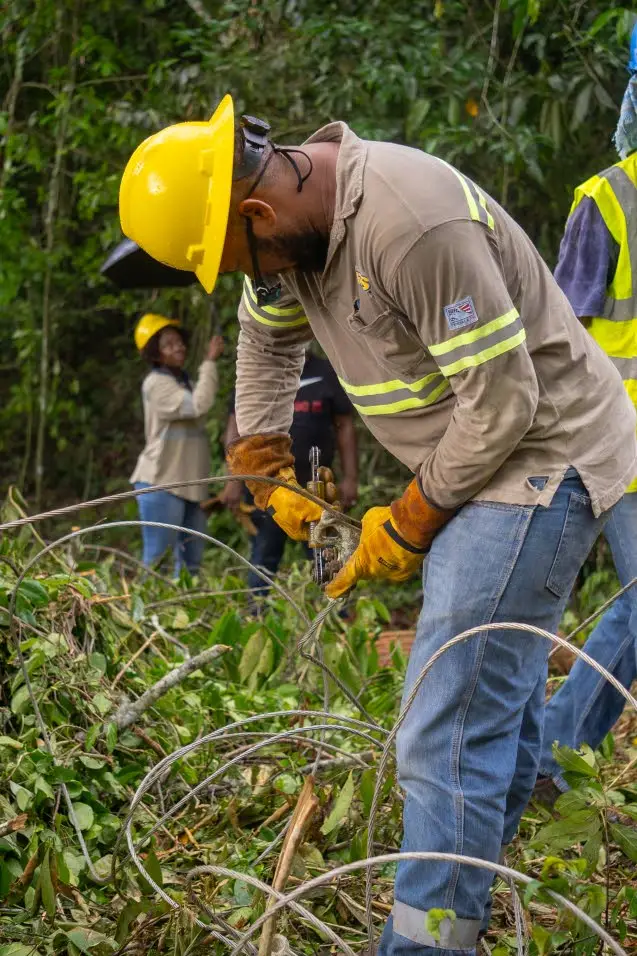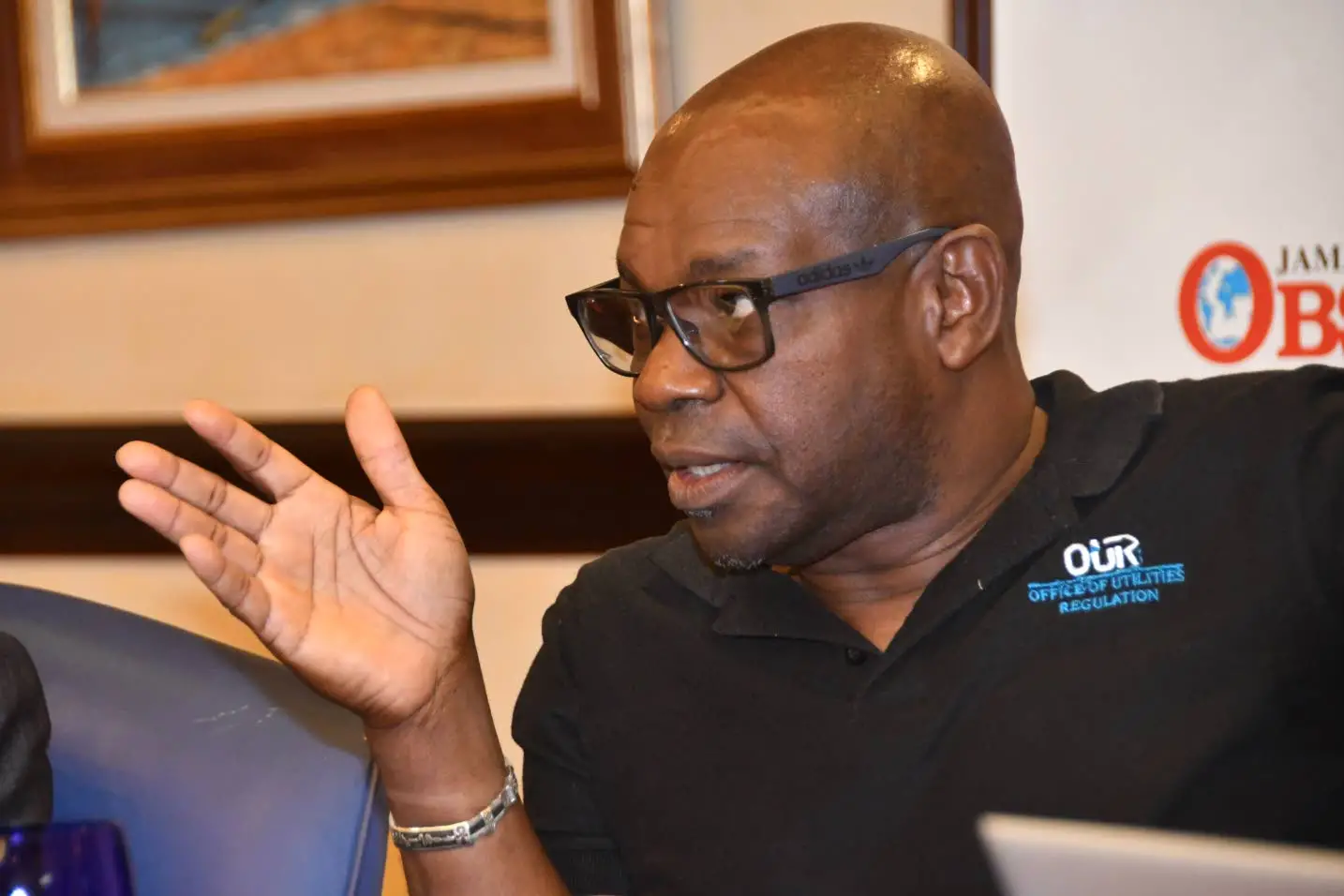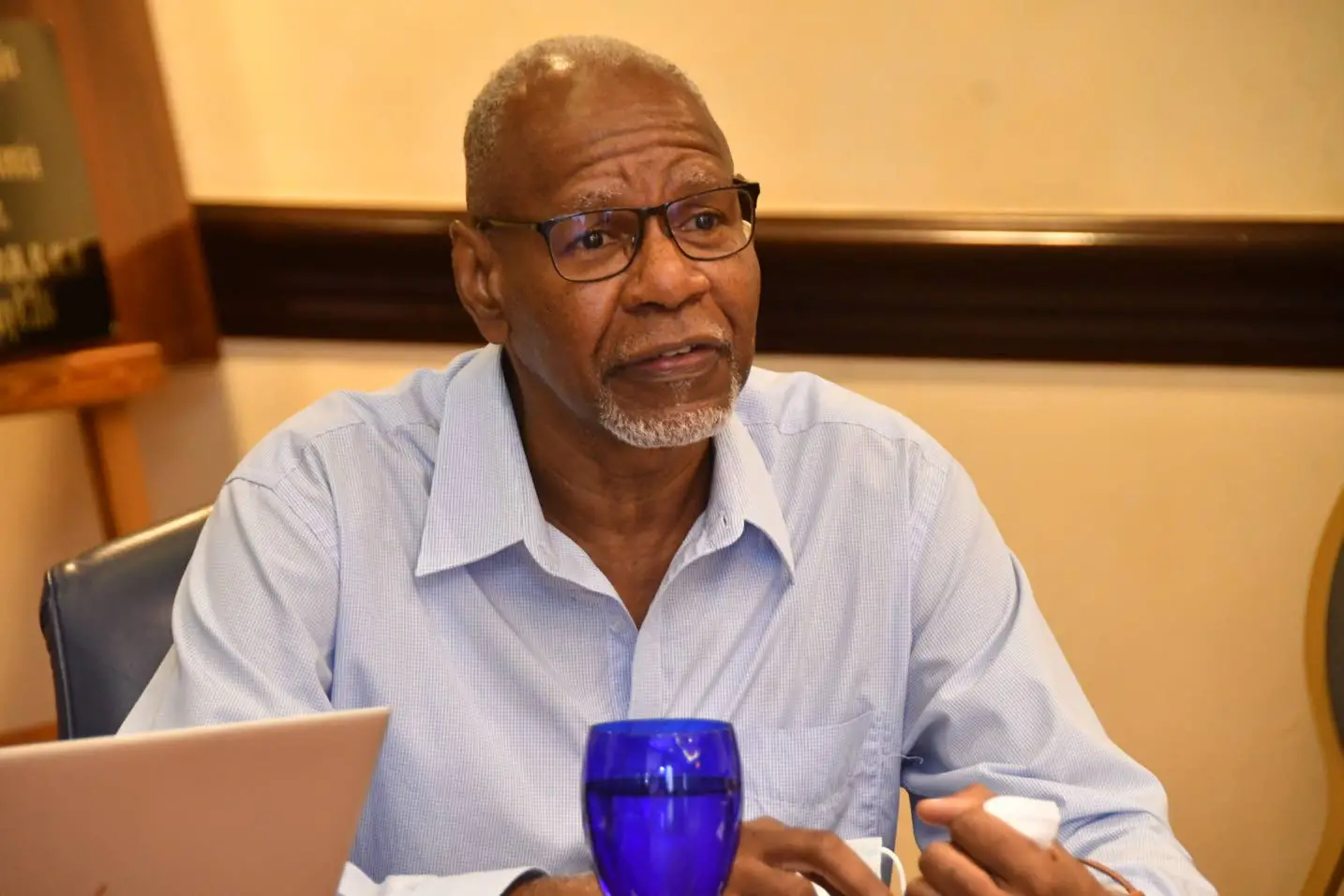
Arrant nonsense!
OUR scoffs at claim that US$56-m Electricity Disaster Fund benefits only JPS
DIRECTOR general of the Office of Utilities Regulation (OUR) Ansord Hewitt has scoffed at claims that the Electricity Disaster Fund (EDF) provides a windfall for the Jamaica Public Service Company (JPS) and no benefit to its customers who finance it monthly through their bills.
“The existence of that fund is not for the provider. The existence of the fund is for the consumers because we want to restore electricity in the shortest time possible and at economic cost. This notion that it is a provision for JPS is something that we just have to completely reject,” Hewitt told a Jamaica Observer Press Club last Friday.
The JPS has tapped the OUR for a further drawdown of US$9 million ($1.4 billion) from the EDF to undertake recovery and restoration efforts in the aftermath of Hurricane Beryl which hit Jamaica on July 3, damaging infrastructure and leaving thousands, particularly along the island’s south coast, without electricity and water for days.
Prior to Beryl the OUR had approved a drawdown of US$4.4 million ($863 million) from the fund for inventory preparations ahead of the hurricane season.
The EDF was established in 2004 by the OUR because of the inability of the JPS to secure insurance for its transmission and distribution network, and Cedric Wilson, deputy director general of the OUR for regulation, policy management and enforcement, last Friday underscored that this is not unique to Jamaica.
“The rules of the fund specifically state that this should be used exclusively for restoration purposes and that is after a hurricane. But in respect to the US$4.4 million… we thought about the fact that when you have a hurricane you need inventory and you need those quickly, so a prudent thing to do is to provide funds upfront to get additional material so that when the hurricane comes you can actually accelerate the pace of restoration,” Wilson told Observer editors and reporters.
“So that US$4.4 million which was provided [to the JPS], that wouldn’t have been provided by a normal insurance company, but we thought that it was important to provide that money upfront,” added Wilson.
He noted that the OUR has not yet approved the additional US$9 million requested by JPS, but based on the rules of the fund, this fits the criteria and will most likely be approved.
“As a regulator you can’t just up and do things, you have to look at things properly… but so far as we are concerned, they [JPS] seem to have met the criteria,” said Wilson as he noted that the rules of the fund state that the advance to the company should be 50 per cent or less of the estimated damage from the hurricane.
Wilson noted that prior to Beryl the fund stood at US$56 million with the disbursements helping the JPS to restore its damaged transmission and distribution network as quickly as possible.
In the meantime, Hewitt told the Observer Press Club that the OUR is also looking at ways to provide relief for JPS customers after a hurricane.
“Having said that, one of the discussions that we are having is…if a hurricane results in a spike in rates, do you need to put in place some form of contingency to deal with customers. What happens in a force majeure [an event for which no party can be held accountable] situation where the customers, their ability to pay is significantly eroded.
“We actually commissioned a paper a couple years ago to look into that. It was very difficult to put something in place and we didn’t pursue it at the time. We are going to have to look back at it because the current construct that we have…when there is a hurricane you are invariably going to have a spike [in light bills] and we have to figure out how to deal with that,” added Hewitt, as he insisted that the EDF is for the restoration of power to JPS customers.



























